British Broadcasting Corporation
White City, 201 Wood Lane, London, W12 7TS
Telephone: 020 8743 8000 Email: ecu@bbc.co.uk
Editorial Complaints Unit
Ref: CT/1200059
11 April 2012
Dear Mr Yates
The Conspiracy Files: 9/11 Ten Years On, BBC2, 29 August 2011
Thank you for your various emails dated between 14 March and 9 April. I hope I can address the various points you have raised on the Editorial Complaints Unit’s finding, although as I have explained previously, it is open to you to ask the Editorial Standards Committee of the BBC Trust to review my conclusions. I can confirm that the Trust would expect to receive details of an appeal within four weeks of the date of this letter, and expects complainants to limit the details of their appeal to no more than one thousand words.
I would like to begin by addressing the point you have raised about a clause in the Royal Charter. The section to which you have referred actually appears in the Agreement which accompanies the Charter: 46 (2) (a) (v)1. This refers to paragraph (l) under section 319 of the 2003 Communications Act2 and is repeated in The Ofcom Broadcasting Code section 2.11.3 There are two separate points which I would like to make. Firstly, and most relevant, the remit of the Editorial Complaints Unit is confined to considering whether an item broadcast (or published) by the BBC met the standards set out in the BBC’s Editorial Guidelines.4
The guidelines are approved and ratified by the BBC Trust, the body appointed by the Government to act as “the guardian of the licence fee revenue and the public interest in the BBC”. The Charter says “In summary, the main roles of the Trust are in setting the overall strategic direction of the BBC, including its priorities, and in exercising a general oversight of the work of the Executive Board. The Trust will perform these roles in the public interest, particularly the interest of licence fee payers”. The General Duties of the Trust are set out in Section 23 and a specific role “approving guidelines designed to secure appropriate standards in the content of the BBC’ s services” is set out in section 24 (1)d.
1 http://www.bbc.co.uk/bbctrust/assets/files/pdf/about/how_we_govern/agreement.pdf 2 http://www.legislation.gov.uk/ukpga/2003/21/section/319 3 http://stakeholders.ofcom.org.uk/broadcasting/broadcast-codes/broadcast-code/harmoffence/ 4 http://www.bbc.co.uk/guidelines/editorialguidelines/
It therefore follows that the Editorial Guidelines set out the standards to which programme-makers are expected to adhere and that is why the ECU considers the content of programmes against those standards, rather than any clauses in the Royal Charter and Agreement, which set out the constitutional basis of the BBC. Accordingly, I have confined my consideration of your complaint to the relevant sections of the Editorial Guidelines on Accuracy and Impartiality.
Secondly, although I mention this only for information, my understanding of the clause you have highlighted from the Charter and the Broadcasting Code (and related documents) is that it refers to the use of subliminal imagery and the like, rather than the approach that programme- makers may take to a subject (what you have described as “fiction peddled as documentary fact”). This appears to be supported by the guidance published by Ofcom5 and by the fact the language used is mirrored in the BBC’s Editorial Guidelines on Flashing Images, Strobing and Images of Very Brief Duration (Section 5.4.58).
I now propose to address the specific concerns you have raised about aspects of my finding, starting with the comments made in your email of 20 March and attached document. I will use the numbering of my original finding for ease of reference. I note that you have indicated your intention to appeal the ECU decision to the Editorial Standards Committee of the BBC Trust and so I will endeavour to keep my responses brief and to the point. Where I have not offered any further explanation to points you have raised this is because I do not believe there is anything I can usefully add to my original finding.
I should make it clear that having reviewed all our previous correspondence, I am satisfied that the programme gave due weight to the available evidence. I appreciate that you would have preferred it if the programme had given more time to exploring and considering other material evidence but programme-makers are entitled to exercise their editorial judgement in deciding what to include in a programme and which contributors to include; the role of the ECU is to consider whether the exercise of such judgements led to a serious breach of the editorial standards set out in the Editorial Guidelines.
As I have explained, I do not believe that was the case; the programme gave due weight to the range of views and opinions on the leading theories as to what happened on 9/11 (including the build-up and aftermath). There was no requirement to refer to or include the kind of detail to which you have referred. Of course, my finding includes an element of personal judgement based upon my understanding of the weight of evidence and I appreciate that others may reach a different conclusion. However, I have endeavoured to approach the various arguments and theories about 9/11 with an open mind.
Email 20 March:
2) The programme did not refer to the “pancake effect” and the graphic used in the programme was just bone brief visual representation used to illustrate the summary of the official NIST report. It must be judged in this context. I fail to see how any previous views which may have been expressed by NIST (or its members) prior to the publication of its final report are relevant. If the organisation did amend its thinking as to what caused the towers to collapse that would not necessarily lend weight to the theory that they were brought down by controlled explosions.
I don’t agree that the theory put forward by Leslie Robertson rested on the “pancake” theory. He clearly explained his theory of what happened and why smoke/gas was seen coming from the building as it collapsed:
5 http://stakeholders.ofcom.org.uk/binaries/broadcast/guidance/831193/section2.pdf
There’s air inside. And as the building comes down it creates very high pressures inside the building itself. It tries to break the glass out and so forth and sure you’re gonna get gas omitted from the building without question.
Viewers would have judged this against other explanations provided in the programme (e.g. Dylan Avery)
2d) There are numerous bodies which are publicly funded. In the UK, these include organisations as diverse as the Health Protection Agency, the Royal Society and the National Gallery. You appear to be suggesting that all publicly funded bodies cannot be independent of Government control or influence and that is not something which I think is generally accepted or acknowledged. I cannot agree that there was a requirement to mention that Purdue University receives funding from the National Science Foundation, which is in turn funded by US Government money.
5) The programme presented the views of informed experts who put forward their opinions on the main theories about 9/11. It included those who support the official version of events (a version which is documented in the various official reports to which I have referred) and contributions from those who have challenged the official version and who explained why. This is an approach which meets the requirements of due impartiality and due accuracy.
7) There is nothing, to my mind, inherently negative in questioning authority or those in positions of authority. This is something which people have done throughout history and some have made a name for themselves precisely for that reason. I note you have referred repeatedly to the image of a “horse’s ass” which appeared very briefly in the opening sequence of this programme as evidence that the programme took a negative view of those who question the official version of events. However, I am not persuaded that this somewhat obscured image would have carried the weight or influence that you suggest.
9) You do not appear to have cited any evidence that members of the 9/11 Commission have questioned the findings of the Commission. Members have expressed concerns about evidence that was given and the lack of co-operation they received from some quarters but the statements you have quoted do not support the conclusion that members of the 9/11 Commission no longer stand by their findings. I am unaware of any public statement by the individuals you have named in which they have called into question the over-arching findings of the Commission.
16a) NIST specifically dismissed theories that the Twin Towers and WTC7 were brought down by controlled explosion and so I cannot accept that the programme misled viewers by failing to explain the scope of the NIST report in detail.
Email 8 April:
I appreciate that you believe the programme should have spent more time examining and explaining the military response to the attacks of 9/11. One thing which is immediately clear on reading your email is that there is a great deal of information and a large number of points of view which you believe should have been reflected in the programme (the number of training exercises and the influence this had on response times, changes to various protocols, the whereabouts of Donald Rumsfeld, apparent discrepancies in timings etc.) I’m not suggesting that the points you have raised are not relevant but I do think the level of detail you have mentioned gives an indication that the issue is not one which could have been dealt with briefly, if it were to be covered in the depth you have indicated.
I don’t agree that the omission of the details you have cited would have given viewers a misleading impression. My view (and I accept that this is subjective) is that the audience would have understood that the official version of events was that there was a lack of communication and a level of confusion, while those who oppose this view believe there was a government conspiracy to facilitate the “attacks” on various buildings and provide an explanation after the fact as to why two or perhaps three of the four planes were not intercepted (assuming the public would believe there was no warning of the first plane to hit the North Tower). A balanced and impartial analysis of the evidence you have cited may have given viewers a more complete picture but its absence did not give a misleading impression.
Email 9 April:
You have suggested that the programme did not meet the requirements of Section 4.4.14 of the Editorial Guidelines because it was not made clear that some contributors were associated with particular viewpoints. You have cited the example of Allyn Kilsheimer. I assume you are suggesting that Mr Kilsheimer knowingly lied about what he saw because of his close business links with the US Department of Defense and that this should have been made clear to viewers.
I’m not in a position to assess the veracity of what Mr Kilsheimer saw, or what he says he saw, but I cannot agree that it was necessary for the programme to have referred to any links he may have had with the Department of Defense.
Firstly, Mr Kilsheimer’s eye-witness account is far from unique. There are many others who have spoken publicly about what they saw at the Pentagon and have effectively confirmed what Mr Kilsheimer said he saw. Indeed, the programme included a contribution from an FBI agent who gave a similar account.
Secondly, the description of Mr Kilsheimer’s experience given by the programme, combined with the nature of what he said, was sufficient to ensure that the audience would have understood he supported the official version of events, thereby meeting the requirement of the guideline you have quoted which says “we may need to make it clear to the audience when contributors are associated with a particular viewpoint, if it is not apparent from their contribution or from the context in which their contribution is made” (my emphasis).
I cannot conclude that the audience would have been given a misleading impression of Mr Kilsheimer’s opinion of what happened on 9/11 (a view which is shared by other eye-witnesses at the Pentagon) or would have given his views undue weight, or that they would have judged his contribution in a materially different way if the programme had referred to any link he may have/had with the Department of Defense.
I appreciate that you do not believe this programme gave an accurate or balanced analysis of 9/11 and failed to give sufficient weight to the evidence which you say supports a different version of events to that set out by the various official reports. However, I am not persuaded that the programme failed to meet the editorial standards as set out in the BBC’s Editorial Guidelines. As I have mentioned, it is open to you to ask the BBC Trust to review my finding.
Yours sincerely
Colin Tregear
Complaints Director
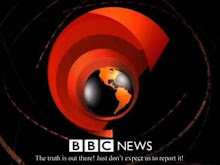

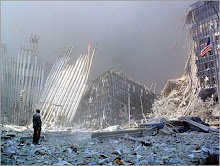
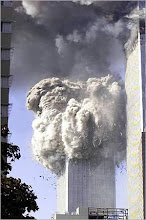
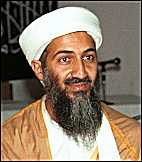
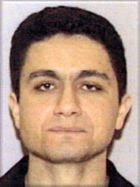

1 comment:
I don't believe I just wasted 10 minutes of my life reading this garbage! Just as I don't believe I wasted an hour of my life watching the documentary in question!
I can only conclude from this that Tregear, along with the BBC in general, is complicit in the UK's cover up of the truth surrounding 9/11. Any vaguely intelligent person who has a modicum of empathy with humanity would spend half an hour on-line and understand how ridiculous the official version of events is.
To me, their desperation to disinform their audience is highlighted by getting a passenger of a plane and a film maker to suggest that I'm a conspiracy theorist and to question (and give possible explanations) why I can't accept the official version of events! Have these people actually looked at any of the mass of evidence that exists to disprove the official story? Who the hell are they for Christs sake and what authority or experience do they have to make such sweeping remarks? How much were they paid I wonder!?!
But, you know what? The most desperate thing about this documentary is that the vast majority of sheeple unquestioningly believe it. I've had people say "The BBC did this great documentary about 9/11"! Once I pick myself up off the floor then I put them right but how do you educate a nation that are so engrossed in their own worlds of debt and celebrity worship etc, etc.?
I despair that such allegedly wonderful institutions like the BBC are instrumental in the deceit surrounding events such as 9/11 (and maybe even 7/7). Sooner or later the truth will come out and I hope we hold everyone at the BBC accountable - I was just doing my job should not be an absolving excuse!
Keep up the good work - I have just watched the latest AE911 film 'Explosive Evidence' and I intend to make sure as many people see it as possible.
Post a Comment